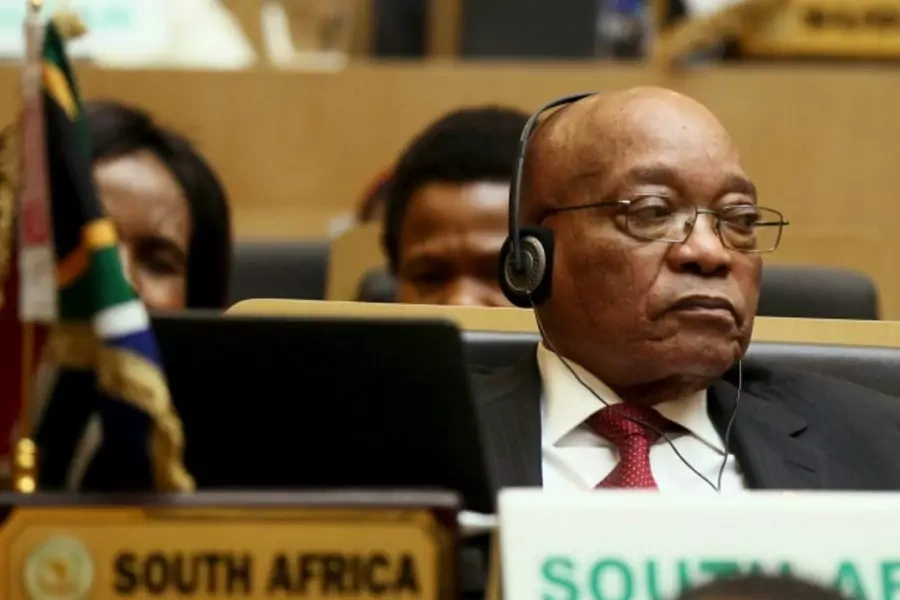South Africa’s Jacob Zuma administration’s notice to the United Nations of its intention to withdraw from the International criminal Court (ICC) has been received with consternation by civil society organizations such as Amnesty International. However, it is unclear, even unlikely, that the Zuma administration can take such a step without a parliamentary vote. It is also unclear whether parliament would go along.
The administration’s move should be seen in the context of South African domestic politics, and as an effort for a politically weakened Zuma to shore up his ‘African’ credentials domestically. Meanwhile, the South African Constitutional Court will rule in November whether the Zuma administration broke domestic and international law by failing to turn over Sudan’s Omar al-Bashir to ICC jurisdiction as required when he visited South Africa for an African Union Summit. (The Court’s ruling will be based on the law at the time of al-Bashir’s visit; South Africa’s moves to withdraw from the ICC will be irrelevant.)
More on:
The Zuma administration’s ‘respectable’ argument for withdrawal is that the ICC has failed to ‘consult’ on the issue of whether head-of-state immunity trumps an ICC indictment. (Head of state immunity would, of course, emasculate the ICC and largely defeat the purpose of its establishment.) Led by Kenya’s Uhuru Kenyatta and other African heads of state of dubious reputation, claims are regularly made that the ICC is ‘biased’ against Africa and hold Africans to a higher standard than elsewhere. At the most recent African Union (AU) summit, Kenya proposed “… a roadmap for the withdrawal of African nations” from the ICC. Though this proposal failed to pass, the AU interministerial committee is likely to present reform demands at the next meeting of ICC members. Just days before the South African announcement, Burundi became the first African nation to announce its withdrawal from the ICC. Accordingly, Zuma’s moves to withdraw from the ICC will be welcomed by the likes of Sudan’s al-Bashir, Kenya’s Kenyatta, Burundi’s Pierre Nkurunziza, and Zimbabwe’s Robert Mugabe—but not necessarily by South African public opinion.
Following a string of scandals and court decisions against him, Zuma is a wounded political figure. The African National Congress’s poor performance in the August local government elections increases his vulnerability. South African civil society, well-organized and articulate, will ensure that administration efforts to withdraw from the ICC is vetted first by parliament and then by the courts. South Africa was one of the founders of the ICC, and the Treaty of Rome has been incorporated into South African domestic law. Hence, withdrawal would be difficult.
More on:
 Online Store
Online Store
